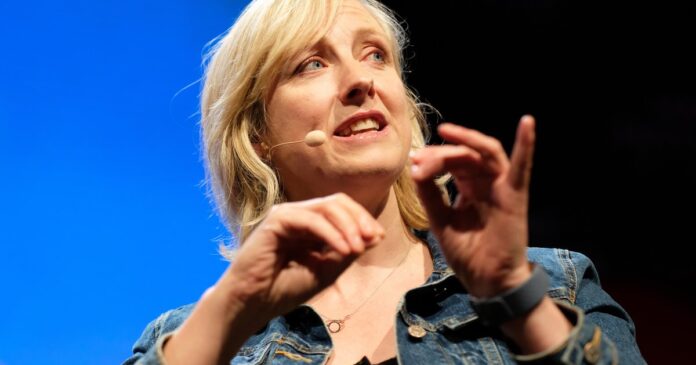Tomorrow Carole Cadwalladr, the award-winning journalist who uncovered the Cambridge Analytica scandal, will be in court facing a defamation suit from Brexit-backing businessman Arron Banks. It’s the culmination of a legal battle that has dragged on for more than two years – and shows just how far the myth of the UK’s ‘free’ press lies from the reality of doing journalism in this country.
Banks is suing Cadwalladr because she said, in a 2019 TED talk and a subsequent tweet, that the Brexit donor had lied about his “covert” relationship with the Russian government. If she loses, Cadwalladr faces legal costs of up to £1m plus damages. Reporters Without Borders have called the case an “abusive” attempt to “silence public interest reporting”.
Whichever way the ruling goes, however, some chilling facts will remain true.
For a start, Banks chose to sue Cadwalladr personally. He has not sued the far better-resourced Guardian Media Group, which published her reporting for years; nor TED, which hosted her talk; nor the many large media outlets, including the BBC and NPR, where she made similar allegations.
Get our free Daily Email
Get one whole story, direct to your inbox every weekday.
Suing journalists personally, instead of the companies that publish them, is a common tactic deployed by those seeking to shut down negative press. Not only does it drain money and morale from the most vulnerable targets, it also distracts them from doing more journalism.
openDemocracy has first-hand experience of this. During my time as editor-in-chief, our reporting on the funding of the Brexit campaign helped prompt law change, parliamentary inquiries and record fines for breaches of electoral law. It was nominated for multiple awards and became the subject of a bestselling book. Yet one of our lead reporters worried he was going to lose his house over a case that was, in the end, never pursued, but which hung over us for two years and drained precious resources.
Second, Cadwalladr has for years been the subject of vicious, misogynistic attacks online – including from Arron Banks’s own Brexit campaign, Leave.EU. Back in 2017, Leave.EU tweeted a video crudely manipulated to show her being violently assaulted. Even after hundreds of complaints, Twitter refused to take it down. After direct intervention from The Observer editor, Paul Webster, Banks’s deputy Andy Wigmore finally removed it.
He was not legally obliged to do so: unlike Banks, Cadwalladr had no recourse under the law to challenge the abusive ‘speech’ she and thousands of others had objected to.
Credit: Source link










